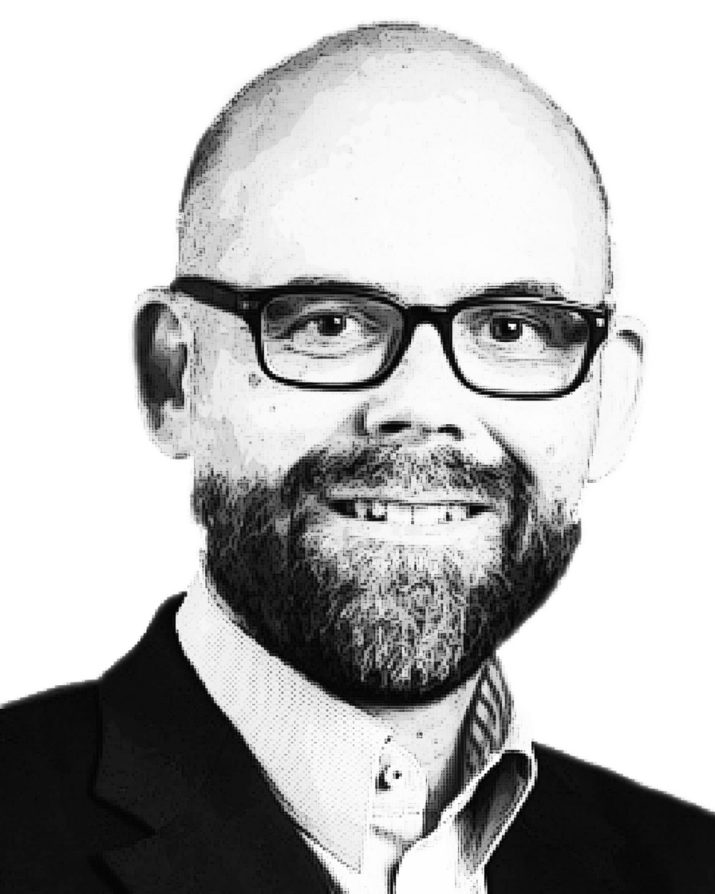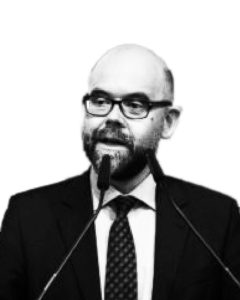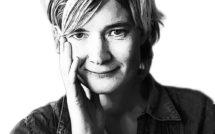

This is part of our special feature, Diversity, Security, Mobility: Challenges for Eastern Europe.
Dr. Peter Haslinger is the Director of the Herder Institute in Marburg, Germany. His research interests include enforced migration, nationalism and regionalism, cultures of memory, and the politics of history. All of these aspects have come together recently, in the shape of a new project for Dr. Haslinger—a symposium and fellowship aimed at connecting young Southern and Eastern European researchers—an academic angle and population often conspicuously missing from the traditional European Studies pedagogy—the opportunity to interact with global players in their fields. Dr. Haslinger and the Herder Institute have undertaken many innovative programs in this area. The Marburg Symposium and Herder-CES Fellowship is a platform from which to disseminate awareness and knowledge, which in turn, creates metaphorical and literal space at the European Studies table for researchers and work focused on Southern and Eastern Europe.
— Lillian Klein for EuropeNow
EuropeNow As the director of the Herder Institute for historical research on East Central Europe, what is your area of expertise? And what currently, are your favorite areas of research?
Peter Haslinger My special field of expertise is the history of the Habsburg monarchy and her successor states since the end of the 19th century. What is of more relevance for our topic, however, is that I have published on theoretical questions like nationalism and regional identities, multiculturality and intersectionality, questions of security, the spatial turn and concepts of geopolitics, memory cultures, and forced migrations. In the past 10 years – as the director of the Herder-Institute – I have also become active in promoting cooperation in the Digital Humanities – e.g. by serving as the spokesperson for a working group on Digital History, convened under the auspices of the German Association of Historians.
EuropeNow Why are these areas relevant to European culture, society, and politics today? Where do you see Minorities, Diversities, and Securities intersecting in Europe today?
Peter Haslinger These research fields are extremely relevant for Europe today – and especially for the Humanities and Social Sciences. On the one hand we have seen a lot of criticism being voiced against approaches to multiculturalism, especially for being too naïve or for reinforcing cultural hierarchies and the boundaries between conflicting belief systems. Multiculturality, however, is a European reality even in countries like Hungary or Poland that are refusing to take refugees. In the future, we will need to deal even more intensively with a broad variety of cultural as well as other forms of societal difference. Against this backdrop, I am convinced that we have to look much more at historical experience all over Europe. In general, input from the Humanities and Social Sciences is indispensable in order to identify and tackle current challenges and come to new approaches. New developments like the ongoing digital revolution are an indicator that we have to speak about diversity of a future Europe in new terms.
EuropeNow This past September, you hosted a symposium entitled “Minorities, Diversities, Securities.” How and why did you become involved in this project? What was the goal of this consortium?
Peter Haslinger One important motive for the formation of the consortium of CES, Herder-Institute Marburg, IBEI Barcelona, and the University of Glasgow was that at the International Conference of Europeanists, only few panels focus on issues of utmost importance for the future of Europe from an explicitly Eastern as well as Southern-European perspective – one aim of this initiative is therefore to develop theoretical impulses for European studies from that angle. The most important aim, however, is to support career paths of promising younger researchers originating from Southern and Eastern member states of the European Union as well as from neighboring academic landscapes by bringing them in direct contact with scholars from the USA and Canada. It was one of the core intentions of the symposium to give them the opportunity to enhance their individual conceptual approaches on the basis of their own current or recently finished empirical studies – and bring them together with experts and stake holders from the organizing institutions and the regional academic environment.
EuropeNow Why is this such an innovative approach to collaboration?
Peter Haslinger Including Eastern Europe into research networks still goes with some challenges, especially in the Humanities and Social Sciences, but in order to be more inclusive for institutions and scholars from the new member states of the European Union (which is also reflected by the EU-13 challenge), additional incentives are needed. Due to its role as a social infrastructure and hub for cooperation and networking for the past decades, the Herder-Institute has been following these overall trends. This form of close and direct dialogue is creating additional visibility, and the consortium should also function as an environment for networking. This is of significant relevance in terms of individual career perspectives – and has also an institutional added value. I can tell, for example, that the Leibniz Association – one of the four non-university players in Germany with one focus in the Humanities and Social Sciences – is very interested in this new design of trans-national career monitoring.
EuropeNow What does/will this mean for young researchers?
Peter Haslinger If we take a look at current trends in Eastern and Southern Europe, the economic perspectives for younger scholars of staying in academia permanently are perhaps less and reliable than in countries of Western, Central and Northern Europe. Moreover, due to a lower degree of younger scholars participating in trans-national cooperation in those countries, international career plans do not always materialize. If younger scholars decide to leave their academic environment in order to go abroad for some time, they might find themselves in a complicated situation when trying to re-establish themselves in their previous academic landscape.
EuropeNow And there is a grant associated with this symposium, correct? What is the goal of the grant?
Peter Haslinger The grant is entitled “Herder-CES Fellowship” and covers a longer research stay at the Herder-Institute in Marburg and gives additional visibility by the possibility to organize a panel for the next International Conference of Europeanists. In the course of the Marburg symposium, this grant was awarded to Ana Ivasiuc, an expert on the Roma minority throughout Europe coming from Romania, whose paper is the opener of this special issue. I was very glad that the committee came to that decision – the Roma question is indeed one of the most urgent problems in Eastern Europe when talking about minority-majority relations and socio-economic as well as cultural-educational equality. I am quite convinced, hoewever, that Ana Ivasiuc will make the best out of it – I do wish her the best for that!
Since 2007, Peter Haslinger has been the Director of the Herder Institute for Historical Research on East-Central Europe in Marburg, Professor of East-Central European History at the Historical Institute of the Justus Liebig University and the Interdisciplinary Center for Eastern Europe in Giessen (GiZo). His research and teaching focuses on security and violence studies; minority issues and questions of nationalism, regionalism and language policies; memory and history of discourse; the spatial turn and the history of cartography. In regard to his regional focus, Peter Haslinger published widely on the Habsburg monarchy and successor states in the 19th and 20th centuries.
Lillian Klein is the programs coordinator at the Council for European Studies. She holds a B.A. in literature with a minor in religious studies from Barnard College, as well as an M.F.A. in fiction from Columbia University. Previously, Lillian assisted in the Memberships, Programs, and Awards Department at PEN America Center. She also served as a teaching fellow at Paris American Academy’s writing program for two consecutive summers.
Published on December 6, 2017.




